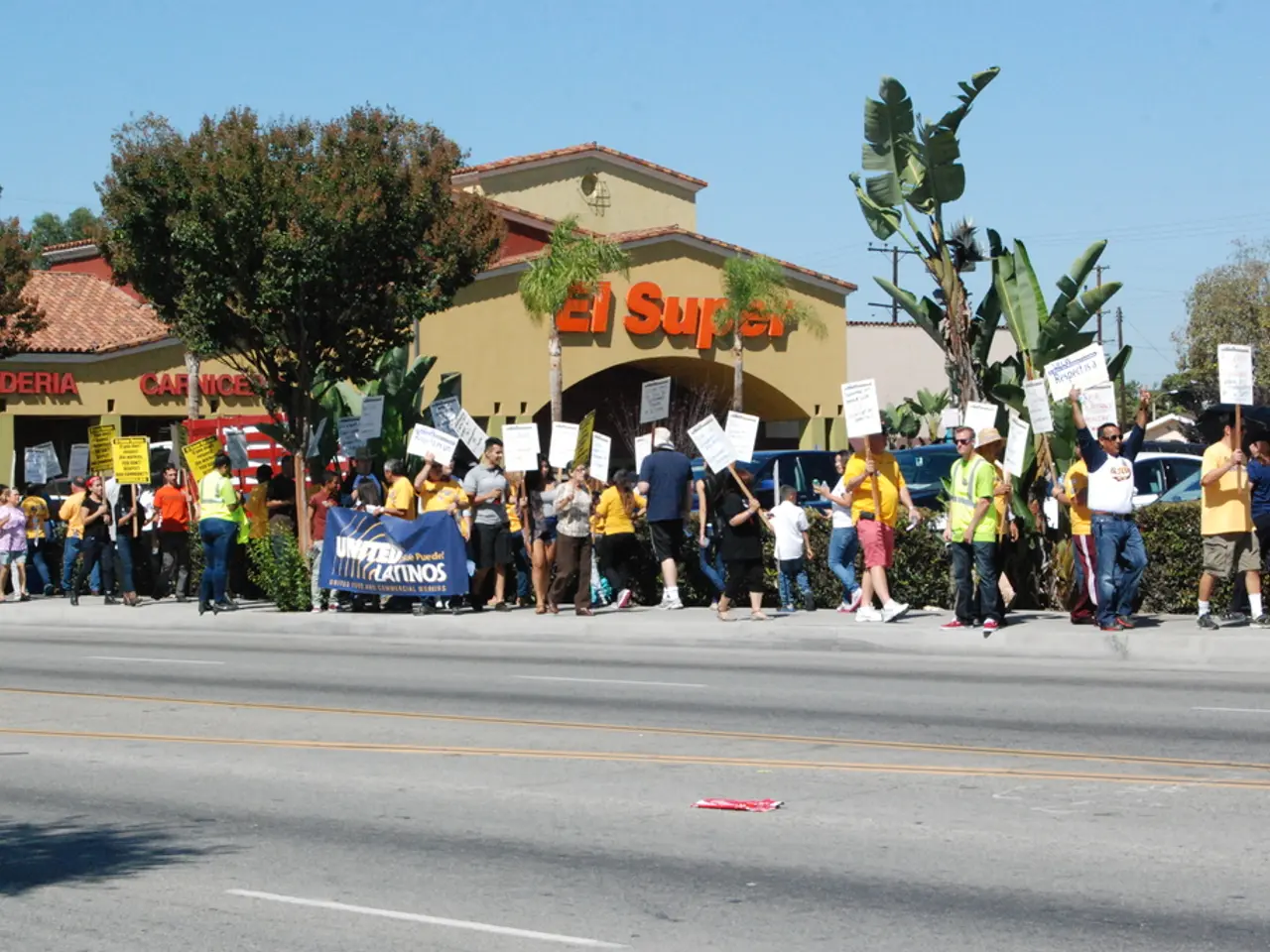BJP's Ideology Mirrors That of British Colonialists, According to YS Sharmila, as They Stir Division Along Lines of Religion, Region, and Language
In a recent development, leaders from the Congress party have expressed concerns about the Rashtriya Swayamsevak Sangh (RSS) and its role in shaping India's national identity.
Andhra Pradesh Congress President YS Sharmila reiterated the party's commitment to protecting national unity, stating that the Congress party takes it upon itself to fight for the rights and keep India united. Sharmila accused the Bharatiya Janata Party (BJP) of promoting divisive politics, drawing parallels with British colonial rule, accusing them of having a "divide and rule" ideology.
The controversy arose after Prime Minister Narendra Modi hailed the RSS as the "biggest NGO in the world" in his 79th Independence Day speech, praising its century-long contribution to nation-building. However, Sharmila criticised PM Modi for praising the RSS, accusing the organisation of promoting exclusionary nationalism that contradicts the inclusive values of India’s original freedom struggle.
Karnataka Deputy CM, DK Shivakumar, refused to comment on the issue but stated that the Congress party has always protected the Constitution and the country. Shivakumar claimed that the RSS didn't hoist the national flag for a long period, adding to the ongoing debate.
The RSS, founded in 1925, is a Hindu nationalist organisation with a focus on the Hindutva ideology, which emphasizes the idea of a unified Hindu identity to foster national unity and strength. Historically, the RSS aimed to cultivate dedication, discipline, and valor among Hindu youth through physical training and paramilitary drills. Although it presents itself as a cultural, non-political body, it has been linked to Hindu nationalist political agendas.
Critics argue that the RSS ideology sidelines India’s pluralistic independence movement, emphasizing Hindu identity at the expense of secular nationalism. PM Modi, however, described the RSS as an organization born 100 years ago with a resolve of 'vyakti nirman se rashtra nirman' (individual development for nation-building). The RSS's aim, according to PM Modi, was the welfare of Maa Bharati (Mother India).
The RSS gained respect for its volunteers' participation in social and cultural activities in the 1940s. However, some critics question the organisation's involvement in assertive campaigns like the Ram Janmabhoomi movement during the 1980s, which some view as promoting exclusionary nationalism.
In conclusion, the RSS's historical context is rooted in early 20th-century Hindu nationalism aiming for cultural unity and strength in India, evolving to shape political discourse and national identity through its Hindutva ideology, which remains influential and controversial in contemporary India. The ongoing debate highlights the need for a balanced perspective on the RSS's role in India's independence and unity.
[1] "Rashtriya Swayamsevak Sangh." Encyclopædia Britannica, Encyclopædia Britannica, Inc., 21 Oct. 2020, www.britannica.com/topic/Rashtriya-Swayamsevak-Sangh. [2] "Hindutva." Encyclopædia Britannica, Encyclopædia Britannica, Inc., 21 Oct. 2020, www.britannica.com/topic/Hindutva. [3] "Bharatiya Janata Party." Encyclopædia Britannica, Encyclopædia Britannica, Inc., 21 Oct. 2020, www.britannica.com/topic/Bharatiya-Janata-Party. [4] "Ram Janmabhoomi movement." Encyclopædia Britannica, Encyclopædia Britannica, Inc., 21 Oct. 2020, www.britannica.com/topic/Ram-Janmabhoomi-movement. [5] "Indian nationalism." Encyclopædia Britannica, Encyclopædia Britannica, Inc., 21 Oct. 2020, www.britannica.com/topic/Indian-nationalism.
Politics remains a contentious issue as leaders from the Congress party voice concerns about the Rashtriya Swayamsevak Sangh (RSS) and its influence on policy-and-legislation, national identity, and general news. The Congress party reiterates its commitment to protecting national unity, taking it upon themselves to fight for the rights and keep India united, while accusing parties like the BJP of promoting divisive politics, akin to British colonial rule's "divide and rule" ideology. This controversy arises following Prime Minister Narendra Modi's praise of the RSS as the "biggest NGO in the world" and its century-long contribution to nation-building, as critics view the RSS's Hindutva ideology as sidelining India’s pluralistic independence movement.







